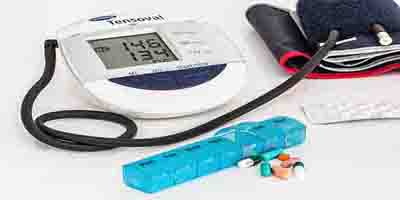The Health Benefits of Saunas
The major health benefits of saunas concern cardiovascular health, improved brain function, stress relief, mortality rate and relaxation.
In this article we are going to show you
- the many possible health benefits and disadvantages of sauna use
- the potential risks involved and
- the precautions you can take to make your sauna experience as pleasant and beneficial to your health as possible.
Table of Content [toggle view]
Is a sauna good for you?
Sauna and weight loss benefits

Sauna sessions can help you with weight loss
A sauna can help you lose weight although not as much as it is sometimes claimed. If you are using a sauna to lose weight it’s advised to also stick to a regimen of a healthy diet and regular exercise.
Time to spend in a sauna to lose weight
In a single sauna session of about 15 to 20 minutes at around 170° Fahrenheit you can lose about 500 grams.
Keep in mind, most of this causes only temporary weight loss (“water weight”) as you sweat out fluids. So don’t forget to rehydrate afterwards!
The average 150-pound woman can expect to lose about 20 calories every 10 minutes in a sauna. While some researchers claim a much higher calorie loss, this is still under debate.
By comparison, you burn calories 1.5 times faster in a sauna than when you are doing nothing, and a casual workout burns nearly twice the amount of calories.
How a sauna helps you lose weight
The real weight loss is caused by the sweating process itself. Sweating requires energy as the heart rate increases. This energy comes from a bodily process that converts fat and carbohydrates, which makes you burn calories.
Combining frequent sauna visits with intensive exercise like running, swimming, wrestling and mma results in an even more effective weight loss.
The best sauna for weight loss
An infrared sauna seems to be the best sauna to lose weight.
While other types of saunas like a steam sauna or dry heat sauna function by heating the air around you, infrared saunas heat your body from the inside out, allowing you to have longer sauna sessions and burn more calories.
Saunas and cardiovascular benefits

Sauna sessions are good for the heart
Frequent sauna use improves the health of the heart and drastically reduces the risk for cardiovascular mortality.
Studies on sauna use and cardiovascular mortality
Finnish researchers conducted a study on the relationship between sauna use and cardiovascular health.
This comprehensive 15 year study followed 1688 participants both male and female, between the ages of 53 and 74.
The results:
- People who frequent saunas on a regular basis are less likely to die from cardiovascular events.
- If you visit the sauna 4 to 7 times per week you have the lowest risk at CVD mortality. The mortality rate for the group that frequented a sauna only once a week was four times higher.
- Longer sauna sessions (45+ minutes instead of 15 minutes) lower the risk for a fatal CVD event even further.
Other similar studies have confirmed this beneficial relationship between frequent sauna sessions and overall heart health.
A sauna can lower your cholesterol
According to one study a sauna can effectively reduce your cholesterol, taking a sauna is actually good for high cholesterol.
This study, published in the International Journal of Occupational Medicine and Environmental Health found a lower cholesterol level in test subjects that took sauna every other day for twenty days.
These health benefits are somehow similar to those of moderate exercise.
Sauna for lower blood pressure

A sauna can lower your blood pressure
Another great proven benefit of a sauna is that it causes lower blood pressure and an improved blood circulation.
Regular sauna sessions seem to have a lasting effect on maintaining a lower blood pressure.
How a sauna lowers your blood pressure
The heat of a sauna makes your heart work faster, which in turn makes your blood pump harder.
Next, blood vessels expand and the blood pressure is raised.
Ultimately after leaving the sauna both the heart rate and blood pressure begin to drop lower than before you started your sauna session.
Studies on how saunas affect blood pressure
There have been numerous scientific reports on the positive relationship between a healthy blood circulation, blood pressure and sauna use.
A recent study published in Mayo Clinic Proceedings proved conclusively that a half hour sauna session lowered both systolic and diastolic blood pressure.
The systolic low blood pressure remained low for 30 minutes after taking a sauna.
A sauna reduces mortality by 40%

Saunas decrease the mortality rate
One of the greatest proven benefits of saunas is how regular sauna use may boost longevity. Going to the sauna can cause you to literally live longer!
Frequent and longer sauna bathing seems to drastically improve the mortality rate for CVD, coronary heart disease and all cause mortality.
Studies on all cause mortality
One study showed that regular sauna therapy reduces all cause mortality up to 40 percent.
This mortality rate even dropped by 50 percent for people suffering from cardiovascular or coronary heart diseases.
The study found that people who attended a sauna at least 4 times a week also had a
- 47% decreased risk of developing high blood pressure
- 66% lower risk of neurodegenerative brain disorders like Alzheimer’s and dementia
- 41% reduced risk of common respiratory diseases
- 37% lower chance of pneumonia
The duration of your sauna session matters
Taking extended sauna sessions also correlates to a reduced chance of death from heart disease and other diseases.
An 11 to 19 minutes sauna session causes 7% lower risk of sickle cell disease than a shorter sauna session.
Sauna sessions lasting longer than 19 minutes even reduce the risk of SCD by 52%.
Taking a sauna boosts your immune system
Taking saunas also helps you build a stronger immune system, according to a 2013 scientific study published in the Journal of Human Kinetics.
The heat of a sauna raises the count of white blood cells, which in itself is a marker for immune strength. Research also reveals that this immunity boost is even higher for regular exercisers.
Benefits of sauna use for the skin

Sauna is good for your skin
The benefits of using a sauna for skin health are among the most noticeable ones. In a sauna the skin is cleansed and rejuvenated, which results in an improved skin elasticity (aka skin tightening).
Sauna for skin thightening
Taking a sauna causes an enhanced collagen production that tightens the skin while the dead skin cells are removed and replaced. This is why the time right after leaving the sauna is the ideal moment for a thorough skin peeling treatment.
How a sauna helps your skin
The heat from a sauna opens the pores and these pores are afterwards closed again due to the cold. This exfoliating makes your pores stronger, cleansing them without the need for any creams or oils.
The deep sweating that occurs when bathing in a sauna improves the blood flow to the skin, relaxes facial tension and rinses out bacteria. Sweating cleanses the pores and stimulates the glands, resulting in skin rejuvenation.
Sauna therapy for asthma patients

Asthma patients benefit from sauna sessions
Asthma patients seem to find relief from some of their symptoms like less wheezing when using a sauna. The heat of a sauna helps to open the airways, loosen the mucus and reduces any built-up stress .
How a sauna helps with asthma
The heat from dry saunas and steam rooms opens and thins the mucus membranes. Many people almost immediately notice an improved breathing upon entering a sauna.
Best sauna for asthma patients
The best sauna for people dealing with asthma is a dry heat sauna.
A dry sauna has a low humidity level while the air is not so hot, making it ideal for asthma patients who could otherwise have difficulty breathing in the heavy air.
Sauna helps with a sinus infection

Saunas speeds up recovery from sinus infections
Saunas can speed up the recovery from sinus infections. The accelerated removal of mucus in a sauna helps to cure sinus infections and sinus congestions much quicker than otherwise.
Best sauna for sinus infections
The best type of sauna for fighting sinus infections and congestions is an infrared sauna. In an IR sauna the person itself is heated, not the surrounding air.
Steam rooms and sinus infections
Steam baths can also be beneficial for the sinuses as they also clear the mucus. However, some people with breathing issues find breathing in steam rooms more difficult than in other types of saunas.
Benefits of a sauna for hair

How a sauna affects your hair
The benefit of a sauna to treat your hair is that the heat and humidity causes an increased blood flow to the scalp.
As the sebaceous gland on the scalp is stimulated it releases useful compounds. These compounds condition and moisturize your hair, rejuvenating it in the process.
As the activated glands on the scalp renew the skin cells you’ll get thicker hair and even hair regrowth can occur.
Is a sauna good or bad for my hair?
A sauna is not bad for your hair as long as you don’t do too many prolonged sauna sessions. So, while you could damage your hair by staying too long in a sauna, a sauna doesn’t cause hair loss in itself.
The best sauna for your hair
The best type of sauna for your hair is probably a steam room.
A steam room is the preferred type of sauna for your hair instead of a dry heat sauna, as dry heat tends to dry out your hair. Steaming causes a deep conditioning and nourishment of the hair.
Sauna use and Alzheimer’s

Sauna benefits Alzheimer’s patients
A comprehensive study spanning 20 years showed that people taking saunas on a regular basis have a drastically reduced risk for Alzheimer’s disease, dementia and other neuro-cognitive diseases.
Researchers have suggested that oxidative stress and inflammation may be contributing factors to the development of dementia. Saunas are believed to be beneficial in relieving stress and fighting inflammations.
Sauna prevents Alzheimer’s
Men who have 2 to 3 saunas sessions per week are 22% less likely to get dementia and 20% less likely to get Alheimer’s disease, compared to other men who didn’t go to the sauna.
Men who attended a sauna 4 to 7 times each week were even 65% less likely to get dementia or Alzheimer’s!
A sauna can be a great sleep aid

Using a sauna for a better sleep
Most studies conducted on the use of a sauna for better sleep are unfortunately still inconclusive. One smaller study from 2015 however showed that (infrared) saunas can actively reduce the symptoms of chronic fatigue.
How a sauna can help you get a better sleep
There are two ways how saunas can benefit people with a sleeping disorder like sleep apnea to get a better sleep:
- Thermoregulation: a sauna session raises your body temperature, the cooling down immediately after you leave the sauna can lull you off to sleep.
- Relaxation: a sauna lowers your stress levels, calms your mind and eases physical pains. This makes it easier to get a deeper, more relaxed sleep afterwards.
Saunas helps with arthritis

What is arthritis?
Psoriatic arthritis, rheumatoid arthritis and osteoarthritis are degenerative autoimmune diseases with no known cure.
The symptoms like stiff, painful joints and a general fatigue worsen during prolonged states of stress and (physical) inactivity.
Benefits of sauna for arthritis
Sauna therapy is good for arthritis patients. The benefits of using a sauna for arthritis are that it can decrease pain, stiffness and fatigue and increase the range of motion.
Studies show that a thermotherapeutic procedure clearly benefits patients with different types of arthritis like coxarthrosis.
Saunas can delay the advance of arthritis through
- stress relief
- lowered blood pressure and improved blood circulation
- increased collagen production
- increased oxygen transportation to the micro circulatory system
Saunas bring about pain relief to arthritis patients
Sauna therapy sessions cause a reduction in muscle spasms, inflammations and soreness, resulting in a so-called “comfort interval“.
Saunas give arthritis patients the opportunity to workout during this remission period.
Exercising strengthens the muscles and improves the overall bone strength. This alleviation of the pressure off the joints delays the advance of arthritis.
“Pain and stiffness decreased clinically, and improvements were statistically significant during and after infrared sauna sessions.
Fatigue also decreased. Rheumatoid arthritis patients felt comfortable during and especially after treatment.”US National Library Of Medicine, Institute Of Health, 2009
The best sauna for arthritis
The best type of sauna for arthritis pain relief would be an infrared sauna.
Studies done on the use of an infrared sauna as a treatment for arthritis found a statistically significant improval in the condition of the patients. These patients experienced a decreased joint pain and stiffness.
Scientists also noted that infrared saunas had no adverse effects on arthritis patients whatsoever.
Sauna therapy benefits athletes

Saunas are good for athletes
Whether you just workout at the gym, do crossfit, practice BJJ or MMA or even prepare for running a marathon, saunas can definitely aid you in dealing with any intense physical activity.
Saunas soothe minor pains caused by exercise
The human body releases endorphins when exposed to the high heat generated in a sauna.
These endorphins are essentially natural tranquilizers that reduce the pain caused by minor bruises and sore and tense muscles after an intense workout.
The alternating periods of heat and cooling off in a sauna relaxes the muscles, nerves and blood vessels. This alleviates any built-up stress caused by exercising.
Saunas help your muscles recover and grow
Saunas can be helpful when dealing with muscle recovery and muscle tension after intense workouts.
Research done by the University of Iowa shows a 200% to 300% increase in the occurence of the human growth hormone (HGH) after a single sauna session.
The human growth hormone regulates among other things tissue repair, and plays a major role in muscle growth by activating protein synthesis in the muscles.
The combined effects of this growth hormone, a relaxed state and an increased blood flow and oxygen transport to the muscles and other tissues helps athletes with muscle growth and slows down any muscle atrophy or muscle degeneration.
Saunas contribute to a faster recovery after a workout
The muscle recovery process triggered by a sauna shortens the actual physical recovery time between workouts.
Athletes experience an alleviation of Delayed Onset Muscle Soreness (DOMS) caused by intense exercise when taking a sauna.
Saunas remove toxins from the body
When you exercise the body breaks down tissue protein to be used for energy, increasing the nitrogen level in the blood.
Nitrogen and other harmful by-products called toxins are usually removed by the kidneys and expelled through urine.
In a sauna these toxins are flushed out at a much higher rate through the opened pores of the skin through sauna-induced perspiration.
Saunas improve endurance and thermoregulatory control
The higher sweat rate or heat stress that occurs in a sauna makes the body adapt to exercising or competing in varying weather conditions, temperatures and altitudes.
This so-called hyperthemic conditioning, or gradual heat adaptation also improves the overall endurance of athletes.
The plasma volume, the blood flow to the heart and other muscles and the muscle mass increase as the body learns to gradually deal with the heat of a sauna.
One study shows that 3 weeks of post-exercise sauna sessions increased the endurance of male distance runners by 32%!
Health risks and precautions

When to avoid the sauna
Your body is stressed when you are ill. The extreme heat in a sauna causes even more stress to the body. Postpone going to the sauna until you’ve recovered.
Don’t go to the sauna without the express permission of your physician if you just feel ill or have any pre-existing medical conditions.
Pregnancy
Any prolonged exposure to hot temperatures raises the core body temperature.
Activities like soaking in a hot tub or going to the sauna should be avoided at all costs when pregnant, as these can cause birth defects.
Certain heart conditions
People with heart conditions like unstable angina, aortic stenosis, a recent heart attack, abnormal heart rhythms or heart valve disease should refrain from using the sauna.
Skin problems
Avoid going to the sauna if you have skin issues like an oozing rash, as it can worsen these problems.
Blood pressure issues
Even though saunas can be beneficial for blood pressure, the intense heat can cause diziness, dangerously low blood pressure and nauseousness.
Also, don’t take a cold plunge after leaving the sauna, as the temperature shock can raise your blood pressure.
Alcohol and saunas don’t mix
Don’t drink alcoholic beverages before and immediately after a sauna.
Medical studies show that being intoxicated in a sauna increases the risk of dehydration, arrhythmic palpitations, hypotension and even sudden death.
What to do when you take a sauna
Stretch before a sauna
Stretching prepares or vitalizes your body and increases your blood flow and flexibility. Doing this before entering the sauna maximizes the health benefits you’ll get from any sauna session.
Shower before a sauna
Showering before a sauna prepares the body by opening the pores and relaxes the muscles.
Dry yourself off well after taking that shower, as entering a sauna with moist skin makes it harder to properly sweat.
Limit the length of your sessions
Learn to know your limits when you take a sauna. A longer sauna session can be harmful to your health if it is out of your comfort level and your body can’t handle it.
Recommended length of sauna sessions:
First-time users/beginners: 5 to 10 minutes
Healthy adults: 15 to 20 minutes
Most experts advise a maximum sauna stay of 20 minutes, even for experienced users. Remember, a sauna is not the right place to test or push your physical limits!
Drink plenty of water before and after
The sweating that occurs in a sauna can lead to dehydration when you didn’t drink enough fluids.
People with certain ailments like kidney disease have an even higher risk at dehydration.
Drink enough (at least 2 to 4 glasses of water) before entering a sauna, and drink again after leaving the sauna to replenish the lost fluids.
Take your time to cool down
Cool down for some time after a sauna, especially if you plan on doing multiple sauna sessions at a time.
Let your body gradually cool down before re-entering. Use this cooling down period to sit, relax and drink some water.
Conclusion
Sauna therapy is an intensive and transformative experience for the body that has many health benefits but also some risks.
Further research on these beneficial effects is ongoing, but the general consensus is that taking a sauna is good for you, as long as you follow the guidelines, medical advice and listen to your body.
Disclaimer
This informational article, although thoroughly researched, is not a valid substitution for medical advice. If you have any concerns whatsoever, always consult with a medical professional first before going to the sauna!
